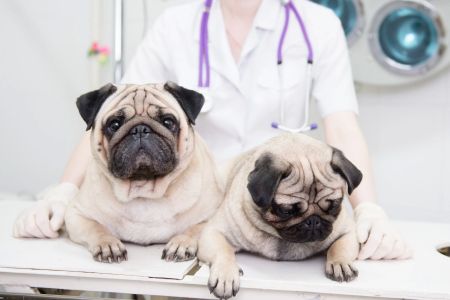How to Help My Dog with Anxiety: A Complete Guide
- Understanding Dog Anxiety
- Common Signs of Anxiety in Dogs
- Causes of Anxiety in Dogs
- Effective Ways to Calm an Anxious Dog
- Natural Remedies for Dog Anxiety
- When to Seek Professional Help
- Find Expert Care for Dog Anxiety
Understanding Dog Anxiety
Just like humans, dogs can experience anxiety. It can stem from past trauma, changes in their environment, separation from their owners, or loud noises like thunderstorms. Some dogs are naturally more anxious due to genetics, while others develop anxiety over time.
Recognizing the causes and symptoms of anxiety is the first step in helping your dog feel safe and secure.
Common Signs of Anxiety in Dogs
Dogs show anxiety in different ways, and knowing the signs can help you address the issue early. Common symptoms include:
- Excessive Panting and Pacing: Your dog may struggle to relax, even in familiar environments.
- Destructive Behavior: Chewing furniture, scratching doors, or digging at carpets.
- Excessive Barking or Whining: A nervous dog often vocalizes its distress.
- Trembling or Hiding: Some dogs physically shake or try to find a secluded spot.
- Loss of Appetite: Anxiety can lead to changes in eating habits.
- Accidents Indoors: Even house-trained dogs may urinate or defecate indoors when anxious.
By identifying these signs, you can take proactive steps to reduce your dog's anxiety.
Causes of Anxiety in Dogs
Understanding what triggers your dog's anxiety can help you manage it effectively. The most common causes include:
- Separation Anxiety: Many dogs become anxious when left alone for long periods.
- Fear of Loud Noises: Thunderstorms, fireworks, and household noises can trigger anxiety.
- New Environments: Moving to a new home or introducing a new pet can cause stress.
- Past Trauma: Rescue dogs or those with a history of neglect may experience ongoing anxiety.
- Lack of Socialization: Dogs that haven't been exposed to different environments may develop fear-based anxiety.
Identifying the cause is key to finding the right solution for your dog's anxiety.
Effective Ways to Calm an Anxious Dog
There are several proven methods to help reduce your dog's anxiety:
- Provide a Safe Space: Create a comfortable area where your dog can retreat when feeling stressed.
- Use Anxiety Wraps: Products like a ThunderShirt apply gentle pressure to soothe your dog.
- Exercise and Play: Regular exercise helps release pent-up energy and stress.
- Desensitization Training: Gradually exposing your dog to triggers in a controlled way can help reduce fear.
- Use Calming Scents: Lavender and chamomile essential oils can have a relaxing effect.
- Provide Mental Stimulation: Interactive toys and puzzle feeders can keep your dog's mind engaged.
Implementing these techniques can significantly improve your dog’s emotional well-being.
Natural Remedies for Dog Anxiety
For those who prefer natural solutions, consider these holistic approaches:
- CBD Oil: Helps calm anxiety without harmful side effects.
- Herbal Supplements: Chamomile, valerian root, and L-theanine support relaxation.
- Bach Flower Remedies: Natural flower extracts designed to ease stress in pets.
- Music Therapy: Playing classical or calming music has been shown to relax anxious dogs.
Natural remedies can be an excellent complement to other anxiety-reducing strategies.
When to Seek Professional Help
If your dog's anxiety persists despite your efforts, it may be time to consult a professional. Signs that professional intervention is needed include:
- Severe Destructive Behavior: If your dog is causing harm to itself or your home.
- Extreme Fear or Aggression: If anxiety leads to aggressive responses.
- Chronic Stress Symptoms: Long-term anxiety can affect your dog's health and quality of life.
A veterinarian or animal behaviorist can offer expert guidance and possible medical solutions for severe anxiety.
Find Expert Care for Dog Anxiety
Helping your dog manage anxiety can improve their quality of life and strengthen your bond. If you need professional advice or treatment options, expert veterinary care is available.
For personalized solutions and compassionate care, visit Hidden Brook Veterinary. Their team specializes in canine anxiety treatment and behavioral support.








